Cargando...
Recursos educativos
-
Nivel educativo
-
Competencias
-
Tipología
-
Idioma
-
Tipo de medio
-
Tipo de actividad
-
Destinatarios
-
Tipo de audiencia
-
Creador
Lo más buscado
- Juegos para aprender niños
- Arte abstracto para cuarto
- Arte bizantino para primero
- Repaso de fisica
- Arte románico
- Problemas aditivos y multiplicativos
- Tripticos de experimentos
- Animales marinos
- Lecturas interactivas
- Arte gótico para cuarto
- Repaso de sintaxis
- Dibujos para niños de primaria
- Juegos de dictado de palabras
- Ciclos de la naturaleza
- Experimentos de acústica para educación secundaria
-
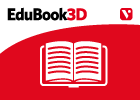
A argumentación
EduBook Organización
- 2376 visitas
Falamos Na vida diaria utilizamos argumentos para defender, reclamar, explicar, convencer, xustificar... Argumentar é dar razóns para apoiar as nosas opinións fronte ás opinións dos demais. Cando…
-
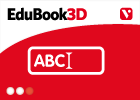
Identifica. Grupo nominal
EduBook Organización
- 2379 visitas
Escribe os grupos nominais que fan de suxeito nestas oracións e os núcleos: A mesa nova de debuxo está raiada. grupo nominal: → núcleo: As maceiras da agra vella xa floreceron. grupo nominal: →…
-
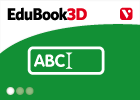
Complete. The economic and social crisis
EduBook Organización
- 2382 visitas
Complete this text with the correct words: In the 17th century there was a in the Spanish Empire. There was less and coming from the Americas. The crisis affected all social groups, especially the .…
-
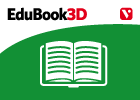
The digestive system (I)
EduBook Organización
- 2381 visitas
The digestive system is the group of organs that digest food, absorb nutrients and expel undigested waste. It contains the alimentary canal and the digestive glands. The alimentary canal The alimentary…
-
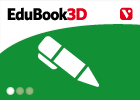
Investigate. Digestive glands
EduBook Organización
- 2390 visitas
A gland is an organ that produces substances that our body needs. These substances may be released inside or outside the body. For example, sweat glands under our skin release sweat outside the body,…
-
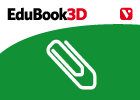
Muscles of the human body
EduBook Organización
- 2388 visitas
These diagrams show the main muscles in the head, the torso, and the arms and legs.
-
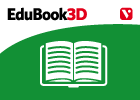
How our muscles work
EduBook Organización
- 2385 visitas
How do muscles move? We use muscles to produce movement, force or both things. This happens when our muscles contract (become shorter and thicker). Muscles are attached to bones by tendons. When a…
-
Self-assessment T10 06 - Machines and structures
EduBook Organización
- 2386 visitas
Are these sentences true or false? Levers are compound machines which are made up of three elements: the load,the effort and the fulcrum. In first-class levers, the fulcrum is located between the effort…
-
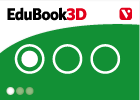
-
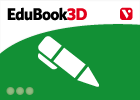
Responde. Poboación e economía de Galicia
EduBook Organización
- 2388 visitas
Observa as fotografías e responde as preguntas: Que cres que representan? Que actividades económicas están representadas? Relaciona cada unha delas coas grandes cidades o coas vilas.
Te estamos redirigiendo a la ficha del libro...













